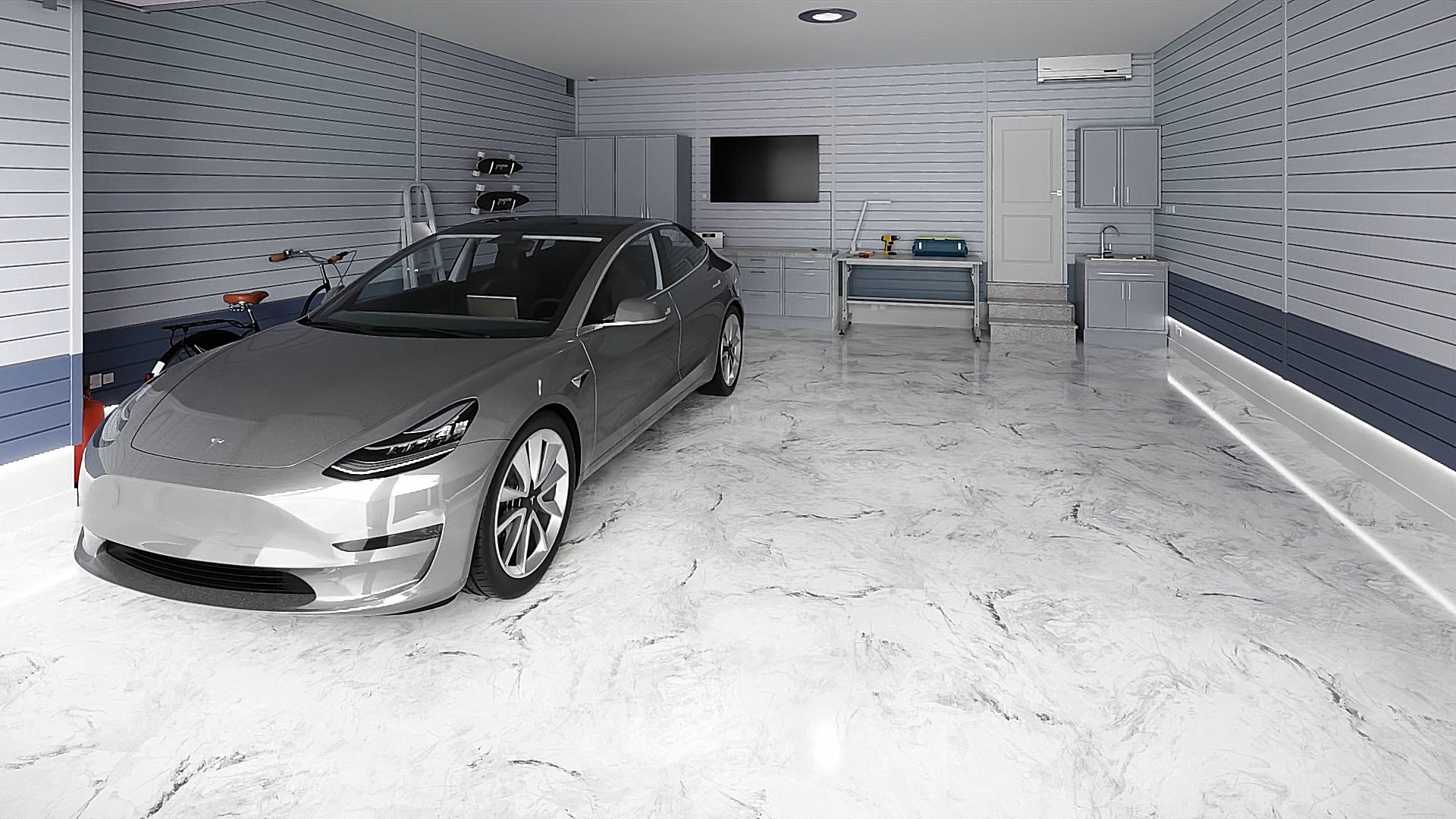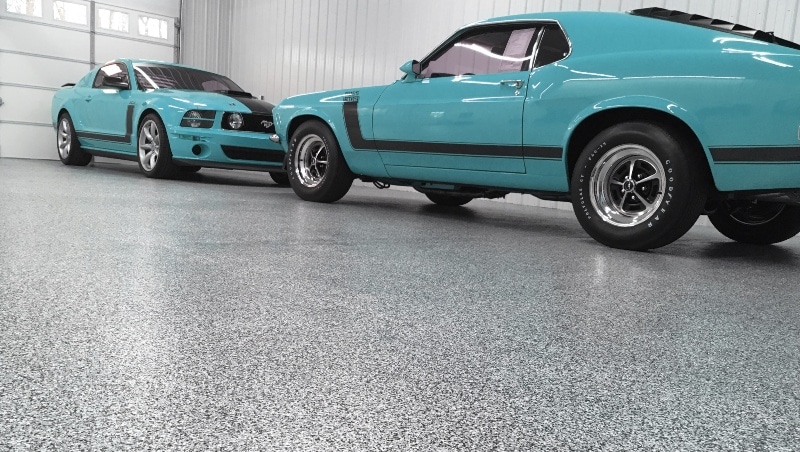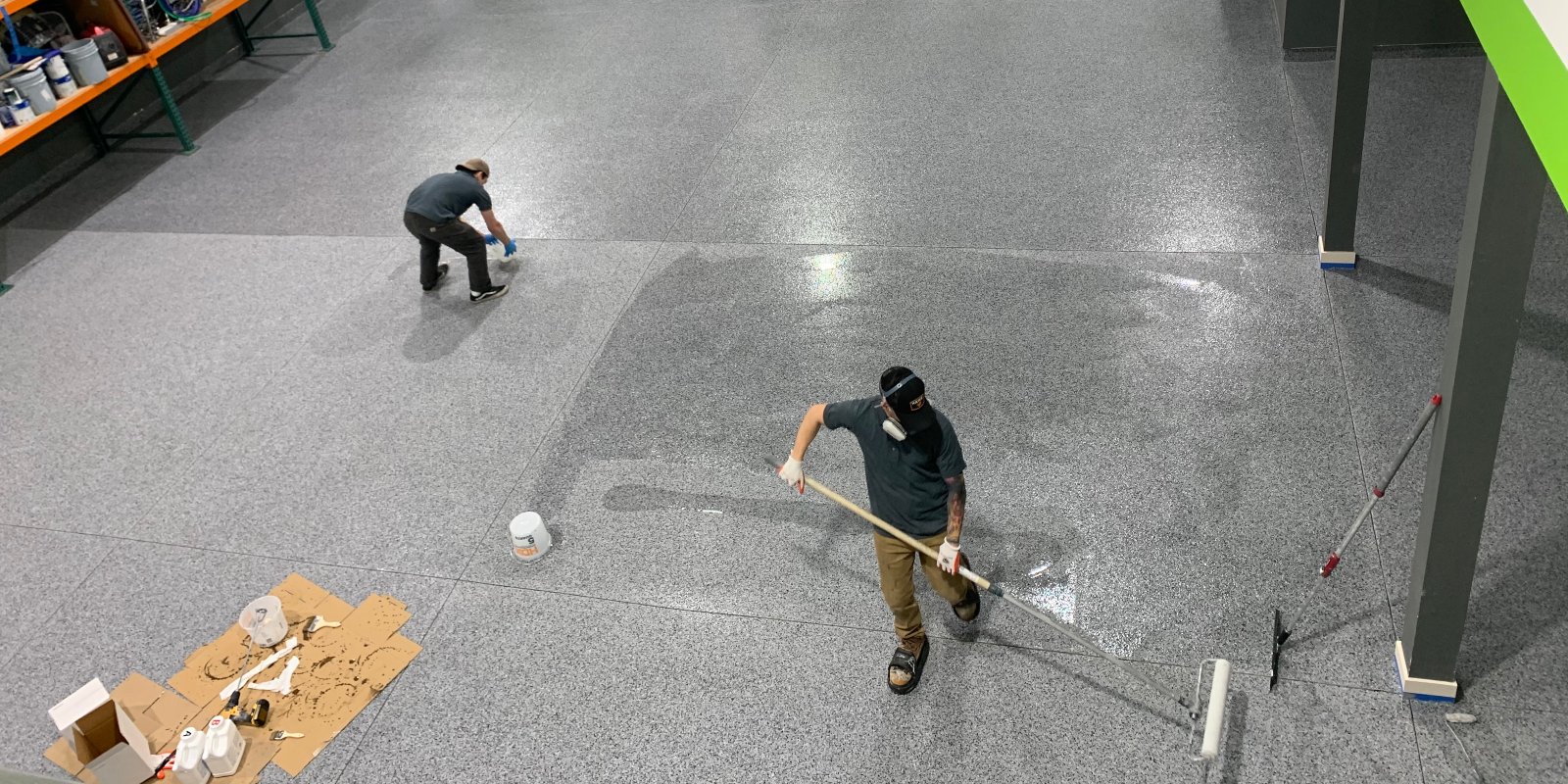The Real Deal on Garage Epoxy Floor Cost: Pricing Factors and Budget Tips
Transform your garage into a stunning space that reflects your style without breaking the bank! Discover how epoxy floors can elevate the aesthetics and functionality of your home, all while staying on budget. In “The Real Deal on Garage Epoxy Floor Cost: Pricing Factors and Budget Tips” we’ll help you navigate cost considerations, offer savvy budget tips, and show you how to achieve a high-gloss finish without draining your savings.
Understanding Epoxy Flooring: More Than Just a Shiny Surface
Epoxy flooring is more than just a glossy, attractive finish; it’s a robust coating that transforms any garage into a durable, low-maintenance, and resilient area. This type of flooring is a result of a chemical reaction between a resin and a hardener, which creates a strong, plastic-like surface. Its imperviousness to oil, gasoline, bleach, transmission fluid, and many other chemicals makes it particularly suited for the rugged demands of a garage environment.
With its seamless and nonporous finish, an epoxy-coated floor is easy to clean and resistant to water and moisture, further protecting against the development of mold and mildew. The durability of epoxy flooring is exceptional; it’s designed to withstand heavy traffic, frequent use, and the weight of cars, making it an ideal long-term investment for homeowners. Moreover, this durability translates into cost-effectiveness over time, as the need for repairs and maintenance diminishes compared to traditional garage flooring options.
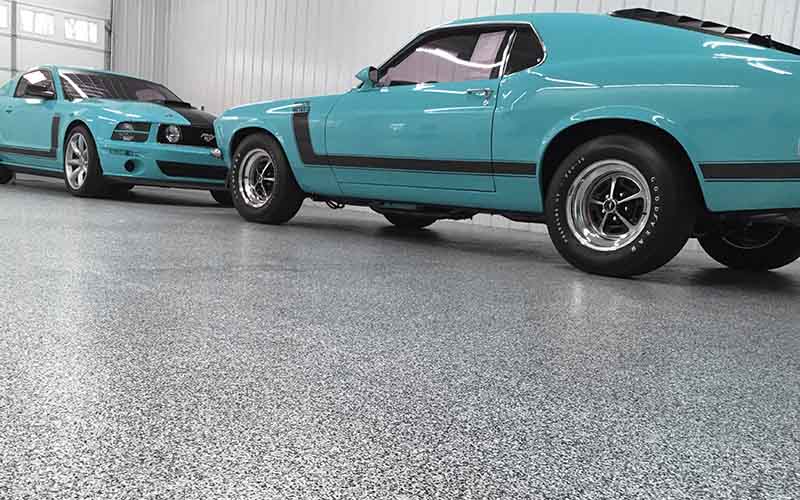
Cost Factors: What Goes Into the Price of an Epoxy Garage Floor?
When considering the installation of an epoxy garage floor, understanding the various components that influence the total cost is key to budgeting effectively. The price is typically determined by factors such as the quality of materials used, which include the epoxy resin, hardener, and additional decorative chips or pigments. Higher quality epoxy means a higher price but also a more durable and visually appealing finish.
Labor costs are another significant part of the equation. The skill level of the professionals applying the epoxy will affect the cost; experienced contractors may charge more, but their expertise can provide a superior finish that lasts longer.
The size of the garage also directly impacts the price since larger spaces require more material and more hours of labor to complete the job.
In addition, the condition of the existing garage floor may require prep work such as repair, cleaning, or leveling before the epoxy can be applied, leading to additional costs. Specialized designs or colors and finishes within the epoxy mix can further customize the job but will typically add to the overall price. By taking these factors into account, homeowners can better manage their budget and expectations for their epoxy garage floor project.
The choice of epoxy type and design intricacies play crucial roles in the final cost of your flooring project. Standard, solid-color epoxy coatings are often the most economical option, providing a clean and polished look. At the higher end of the spectrum are premium multi-layered epoxy systems that include base coats, flakes, and topcoats that not only enhance the floor’s durability but also its aesthetic appeal. These systems can replicate the look of granite, terrazzo, or other high-end materials.
Custom designs, such as emblem inlays or intricate color patterns, add a personalized touch but also raise the price due to the additional labor and materials required. Metallic epoxy, with its shimmering, pearlescent effects, is another popular design choice that can create a stunning visual impact in your garage. However, because it involves advanced installation techniques and specialty pigments, metallic epoxy leads to higher costs. Understanding these options and the associated pricing can assist in tailoring the project to match both the desired look and allocated budget.
Do-It-Yourself vs. Professional Installation: A Cost Comparison
When weighing the options between a DIY approach and hiring a professional for your epoxy garage floor, the cost comparison is not just about the immediate expense. DIY kits might seem like a cost-effective solution upfront, with prices depending on the quality of the kit and the size of your garage. They offer homeowners the opportunity to save on labor costs and can range from relatively basic to more advanced systems with a variety of color and texture options.
However, professional epoxy installation comes with the benefit of experience and expertise. While this option incurs higher labor costs, professionals ensure proper floor preparation, correct application, and a level of durability that might be challenging for a DIY enthusiast to achieve. They can also warrant their work, providing added value to their service. A professional job might include additional treatments like crack filling, moisture barrier installation, and custom finishes that few DIY kits can match.
In the long run, the longevity and quality provided by professional installation might offset the initial savings gained from a DIY project, reducing the need for repairs or a complete redo. Therefore, it’s essential to consider both short-term and long-term costs when deciding whether to embark on a DIY project or invest in professional installation for your epoxy garage floor.
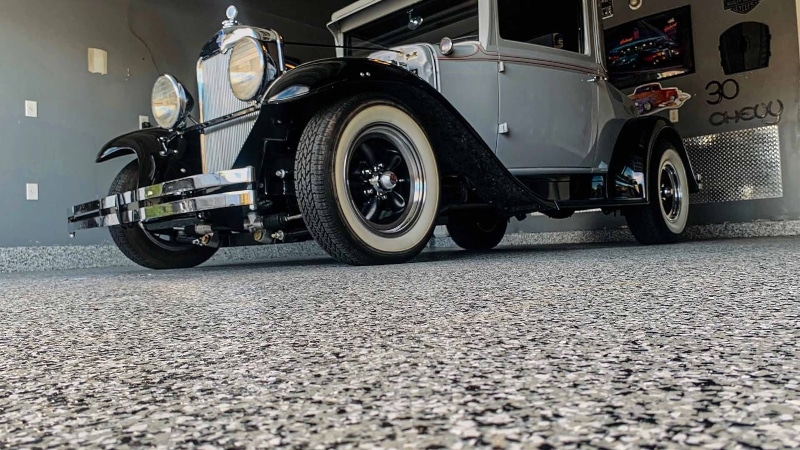
Smart Spending: Budget Tips and Tricks for Your Epoxy Flooring
Investing in epoxy flooring for your garage doesn’t have to be fraught with financial worries. With some strategic planning, you can afford a superb finish without compromising on quality. Begin by comparing quotes from multiple contractors to ensure competitive pricing and consider sourcing materials yourself to cut down on marked-up costs from middlemen. If you’re considering the DIY route, opt for the best quality kit you can afford, as high-end materials tend to yield a longer-lasting surface, meaning you’ll save money on potential touch-ups in the future. For those hiring professionals, schedule your installation during off-peak seasons when labor demand is lower, possibly allowing for better rates. Lastly, maintaining your new epoxy floor is essential — regular cleaning and minor repairs can prevent the need for more extensive, costly work down the line. By following these budget tips and tricks, your epoxy flooring project can combine both economy and excellence.
In conclusion, while the initial cost of installing an epoxy garage floor may seem significant, it is an investment in the longevity, functionality, and aesthetics of your home. The careful consideration of the quality of materials, labor expertise, and size of the project, alongside the condition of your existing floor and desired finishes, will guide you to make an informed decision. Moreover, the decision between a DIY approach and professional installation will hinge on the consideration of upfront costs versus long-term value. Ultimately, a well-maintained epoxy garage floor offers a high return on investment by providing a durable, easy-to-clean surface that can significantly enhance the overall appeal of a property. By utilizing smart spending strategies and proper upkeep, homeowners can enjoy the myriad benefits of epoxy flooring while ensuring a cost-effective solution that stands the test of time.
https://www.google.com/maps?cid=2589512530409833629




